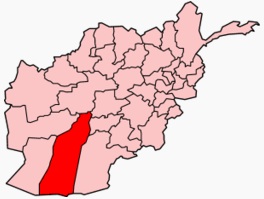The tiny farming community of Marjah, the location of what is to this point
is the single largest US military operation in Afghanistan since the 2001 invasion, was supposed to be the turning point for the war, at least from a public image standpoint.
 A “city of 80,000 people” (which it never was), a key Taliban stronghold (likewise, the only reason it remained unattacked was because it was uniquely irrelevant in Helmand Province), Marjah was supposed to be the perfect location to test the “clear and hold” strategy.
A “city of 80,000 people” (which it never was), a key Taliban stronghold (likewise, the only reason it remained unattacked was because it was uniquely irrelevant in Helmand Province), Marjah was supposed to be the perfect location to test the “clear and hold” strategy.
US troops did clear it, eventually. The battle was fiercer than it was supposed to be, in no small part because the US was publicly announcing its planned invasion for over a month, but it was captured. Holding, however, is another matter.
In testimony to the Senate Foreign Relations Committee, top defense officials are admitting that even now, months after the invasion began, the US military is more or less stuck in this do-nothing farming village, because they can’t convince what few trained Afghans there are in the Karzai government to come and take control.
An invasion to prop up a Karzai-appointed governor was a questionable strategy in the first place, but the complete inability of the Karzai government to maintain a mostly irrelevant village, even temporarily, speaks to an absolute lack of US planning ahead of the offensive.


